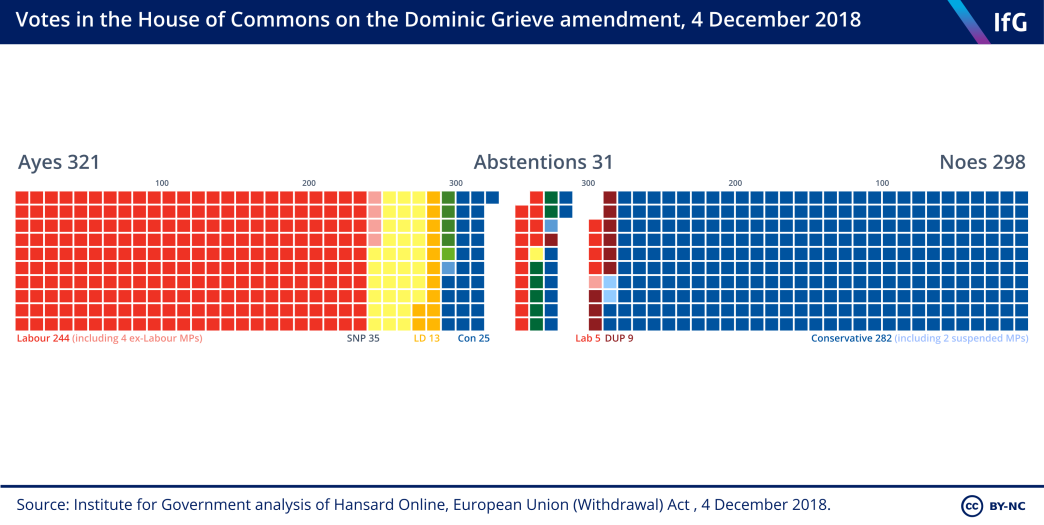Parliament needs to find an alternative to no deal Brexit
Parliament is still avoiding doing the only thing that will stop no deal – coming up with an alternative plan.
Parliament is putting its energy into trying to prevent a no deal Brexit. But Dr Catherine Haddon says it is still avoiding doing the only thing that will stop no deal – coming up with an alternative plan.
Parliament is returning, with the Finance Bill (the legislation for the Budget) returning to the Commons and a second attempt at the meaningful vote debate on the Prime Minister’s deal next week. The focus thus far appears to be on what happens in the event of no deal. Senior backbench MPs are lining up to push amendments that address no deal scenarios.
We have already had one. Dominic Grieve’s amendment to the business motion in the last meaningful vote debate aimed to make sure that, if the deal did not pass, MPs would have another meaningful debate on no deal. Grieve’s motion was passed and the Government has said that it will continue to be respected in this new debate.

We now have other attempts to tackle no deal. First up is an amendment to the Finance Bill led by Yvette Cooper. This attempts to ensure that the UK has either a deal, a decision to extend Article 50 or a specific vote by the Commons approving a no deal Brexit. Another amendment led by Chris Leslie is less explicit but seeks to prevent the provisions of the bill coming into force until a specific motion is passed agreeing no deal. Neither of these amendments would stop no deal itself: all they would do is prevent provisions of the Finance Bill coming in to force unless Parliament has given its consent.
All three show the intent of Parliament. They are efforts to give MPs extra ways to influence the Government, or to restrict it, or to force the debate back to Parliament.
But they fail to tackle what lies behind no deal – the date of exit is written into UK law and EU law. Parliament giving itself more power doesn’t change that. At some point, if there is a majority against the Prime Minister’s deal and against no deal, there needs to be an alternative for the terms of our exit or a plan for what to do about the Article 50 process. There are few signs of that yet – a general election or second referendum are further processes, not in themselves a different policy.
Since the Government ramped up preparations for a no deal Brexit, it has, for many people, become a much greater possibility. This sense of urgency is driving MPs’ behaviour in Parliament and it is urgent. But these amendments only go so far – they hamper the Government, they can give Parliament a further say, but they don’t stop no deal.
We will see next week just how much opposition there is to the Prime Minister’s deal and we will also see how much opposition there is to no deal. These are important moments that will make headlines and cause further political drama – and still have the potential to bring down the Government. But the key will be any proposals for what to do instead and whether these have any support. Until we see them, and the numbers, Parliament will continue to be stuck.
What is important in these amendments is whether they help crystallise what Parliament wants to do instead. MPs can keep storing up opportunities to have influence, but the only way to firmly rule out no deal is to have either a deal or an alternative strategy.
- Keywords
- Parliamentary scrutiny
- Legislature
- House of Commons
- Publisher
- Institute for Government